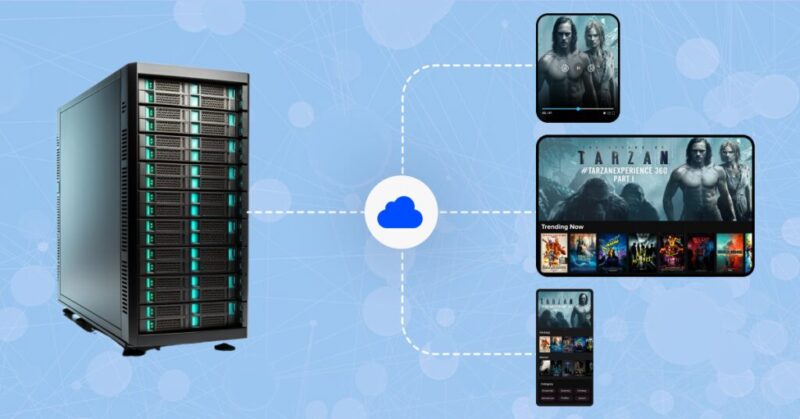
When launching or growing an ASP.Net-powered website or web application, one of the most important decisions you’ll make is choosing the right hosting environment. Shared, VPS (Virtual Private Server), and Dedicated hosting all support ASP.Net applications, but they offer very different levels of performance, control, scalability, and price.
Whether you’re managing a small business website, developing a SaaS platform, or running a high-traffic enterprise site, this guide will help you understand the differences between hosting types—and which one makes the most sense for your needs.
What Is ASP.Net Hosting?
ASP.Net is a powerful, open-source web framework developed by Microsoft, used to build dynamic websites, APIs, and cloud-based web applications. Hosting environments for ASP.Net must support Microsoft technologies such as the .NET Framework or .NET Core (now just .NET), Internet Information Services (IIS), and often MS SQL databases.
The best hosting providers offer environments optimized for ASP.Net, often with Windows Server OS, one-click app deployment, version control, and developer tools. However, the type of ASP.NET web hosting—shared, VPS, or dedicated—will affect how much control, performance, and scalability you have.
Shared ASP.Net Hosting
Best For: Beginners, low-traffic websites, hobby projects, and small business sites with limited budgets.
Shared hosting means your ASP.Net website is hosted on a server that also supports dozens (sometimes hundreds) of other sites. All sites share the same pool of resources—such as CPU, RAM, and bandwidth.
Advantages of Shared ASP.Net Hosting:
- Affordable: Shared hosting is the most budget-friendly option, ideal for small projects.
- User-Friendly: Most shared hosting platforms offer easy setup with control panels like Plesk, one-click installs, and automatic updates.
- Low Maintenance: Hosting providers manage server maintenance, security, and performance optimization.
Drawbacks:
- Limited Resources: You’re sharing server capacity with other websites. If one site experiences a spike in traffic, it could slow yours down.
- Minimal Customization: Root access is usually restricted, limiting advanced configuration options.
- Scalability Limits: As your site grows, you may outgrow the available bandwidth or processing power.
Who Should Use It?
If you’re launching a simple ASP.Net site—such as a portfolio, brochure website, or MVP project—shared hosting offers a cost-effective, easy-to-manage solution.
But if your site begins to attract more users or needs more power, you’ll likely need to upgrade.
VPS ASP.Net Hosting
Best For: Developers, medium-traffic websites, growing businesses, and applications that require more control or customization.
A Virtual Private Server (VPS) is a single physical server partitioned into multiple virtual environments. Each VPS gets its own operating system, resources, and storage allocation, offering much more flexibility than shared hosting.
Advantages of VPS ASP.Net Hosting:
- Improved Performance: With dedicated portions of server resources, your site isn’t affected by other users.
- Root Access: You can install custom software, configure the server environment, and optimize performance for your ASP.Net application.
- Better Scalability: Easily scale up CPU, RAM, or storage as your application grows.
Drawbacks:
- Moderate Cost: More expensive than shared hosting, though still more affordable than dedicated servers.
- Some Maintenance Required: Depending on the provider, you may need to handle some aspects of server management yourself (unless using a managed VPS).
Who Should Use It?
VPS hosting is ideal for ASP.Net developers and businesses who need better performance, flexibility, and security. It’s a solid middle ground—offering enough power for most applications without the cost of a dedicated server.
Dedicated ASP.Net Hosting
Best For: Large-scale enterprise applications, e-commerce platforms, SaaS solutions, or any high-traffic ASP.Net site with mission-critical performance needs.
With dedicated hosting, you lease an entire server exclusively for your website or application. This gives you full control over server configuration, operating system choice, and resource allocation.
Advantages of Dedicated ASP.Net Hosting:
- Maximum Performance: All hardware resources are yours alone. Ideal for complex apps, large databases, or heavy traffic loads.
- Full Customization: Install any version of ASP.Net, configure IIS and Windows Server settings, and fine-tune performance and security to meet your specific needs.
- Highest Security: No other users share your server, which minimizes risks and allows for advanced security protocols.
Drawbacks:
- Higher Cost: Dedicated hosting is significantly more expensive than shared or VPS options.
- Requires Technical Skill: Unless you choose a fully managed plan, managing a dedicated server may require experienced system administrators.
Who Should Use It?
Choose dedicated ASP.Net hosting if you’re running an enterprise-level application, a mission-critical business website, or anything that requires maximum speed, control, and security.
Final Thoughts
There’s no one-size-fits-all solution when it comes to ASP.Net web hosting. Shared hosting is a solid entry point for small or simple websites, while VPS offers the flexibility and performance needed by growing applications. Dedicated hosting, on the other hand, is the go-to for organizations that demand maximum power, control, and reliability.
As your site or application grows, you may need to upgrade your hosting plan. Starting with a provider that allows seamless transitions between shared, VPS, and dedicated plans can make your growth journey smoother.














